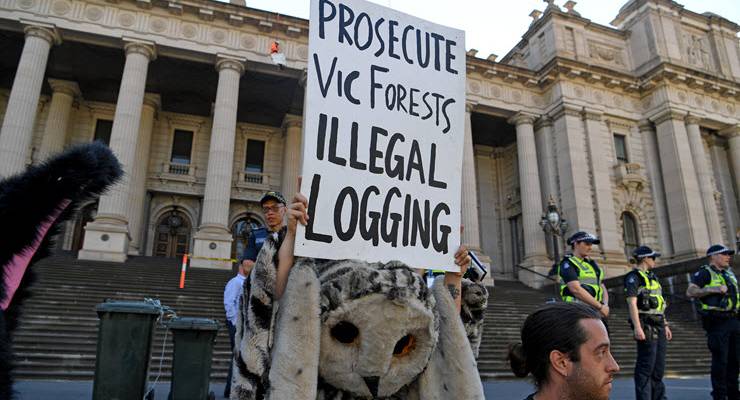
“Never waste a good crisis”. It’s one of those quotes variously attributed to Winston Churchill and Machiavelli. But, whatever its provenance, governments around Australia seems to be taking it to heart.
COVID-19 has turned out to be an effective cover to sneak through some controversial changes. Let’s take a look at what’s happened so far.
Locking in the lopping down
At the end of March, the federal government and the Dan Andrews government in Victoria extended agreements — for a further 10 years — that exempt logging companies from adhering to federal conservation laws.
The move was criticised by environmental groups, coming so soon after months of catastrophic bushfires had decimated local wildlife. The logging of native Victorian forests has been an ongoing headache for governments of both stripes for decades. The relative quiet that greeted the extension must have been a blessing.
Gas ban lifted
Andrews again attracted the ire of environmental groups, announcing in mid-March that his government would overturn the ban on conventional gas exploration in Victoria, effective July 2021.
“It’s extraordinary that after such a horror bushfire season any government would be considering increasing fossil fuel use in the state,” Environment Victoria chief executive Jono La Nauze said.
“Increasing gas use in Victoria will expose Victorians to a greater risk of climate change including worse droughts and worse bushfires.”
This decision was made under pressure from Energy Minister Angus Taylor, who made it the prerequisite for federal funding for other energy development in the state.
It’s since been found by The Australia Institute that the Andrews government had underestimated the levels of pollution onshore gas exploration and extraction would create by up to seven times.
Billions more in private school funding
Private schools are expected get an extra $3.4 billion over the next decade under amendments to the Australian Education Act 2013, passed on March 23.
The new law changed the way the government measures how much taxpayer money a school receives. It breezed through both houses, with Greens Senator Mehreen Faruqi accusing the government of rushing “this cash bonanza for private schools through” while parliament formulated its coronavirus response.
Her dissenting report called it “yet another shameful display of the bipartisan commitment to entrenching educational inequality in Australia”.
Sydney’s water supply undermined
On March 30, the Gladys Berejiklian government in New South Wales gave the go-ahead for the extension of coal mining from three new longwalls –two of which are under one of greater Sydney’s reservoirs, Woronora.
It is the first approval of this sort since the turn of the century, and prompted widespread concerns about the effects on water quality and the potential for subsidence causing the reservoir to drain.
A petition opposing this mining expansion attracted 10,000 signatures. However, NSW parliament has been suspended and was not sitting to debate it.








We are virtually having a rehearsal for climate change catastrophies through being hit hard by the coronavirus.
The kind of decisions being pushed onto Victoria and have already been forced onto the Northern Territory are promoting further emissions increasing climate change effects, added to new coal mines. We do not know when tipping points might happen that are irreversible, a business as usual approach will ensure that such tipping points happen. Already there are questions whether a tipping point has been reached through the break down of Antarctica’s glaciers. One of the glaciers has been dubbed the “Doomsday Glacier”. Our children and grand children will feel very serious challenges, more likely than not insurmountable.
Yet again, well bloody DONE!
Some of the outrages being perpetrated during this crisis will have severe consequences for the future.
Nobody ever accused the wealthy & powerful of not keeping the eye$ on the prize$ whilst we punters take our chances in the wreckage.